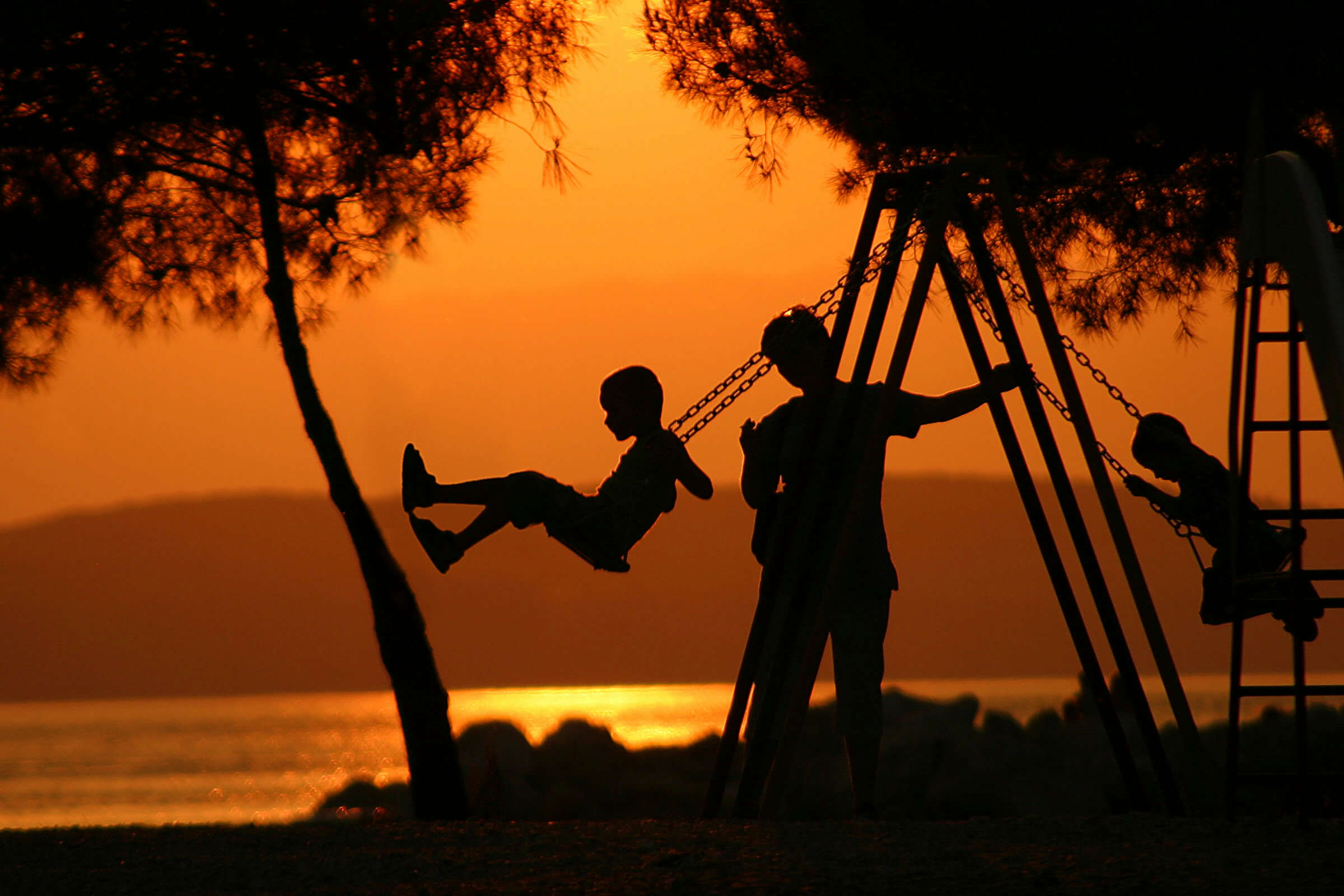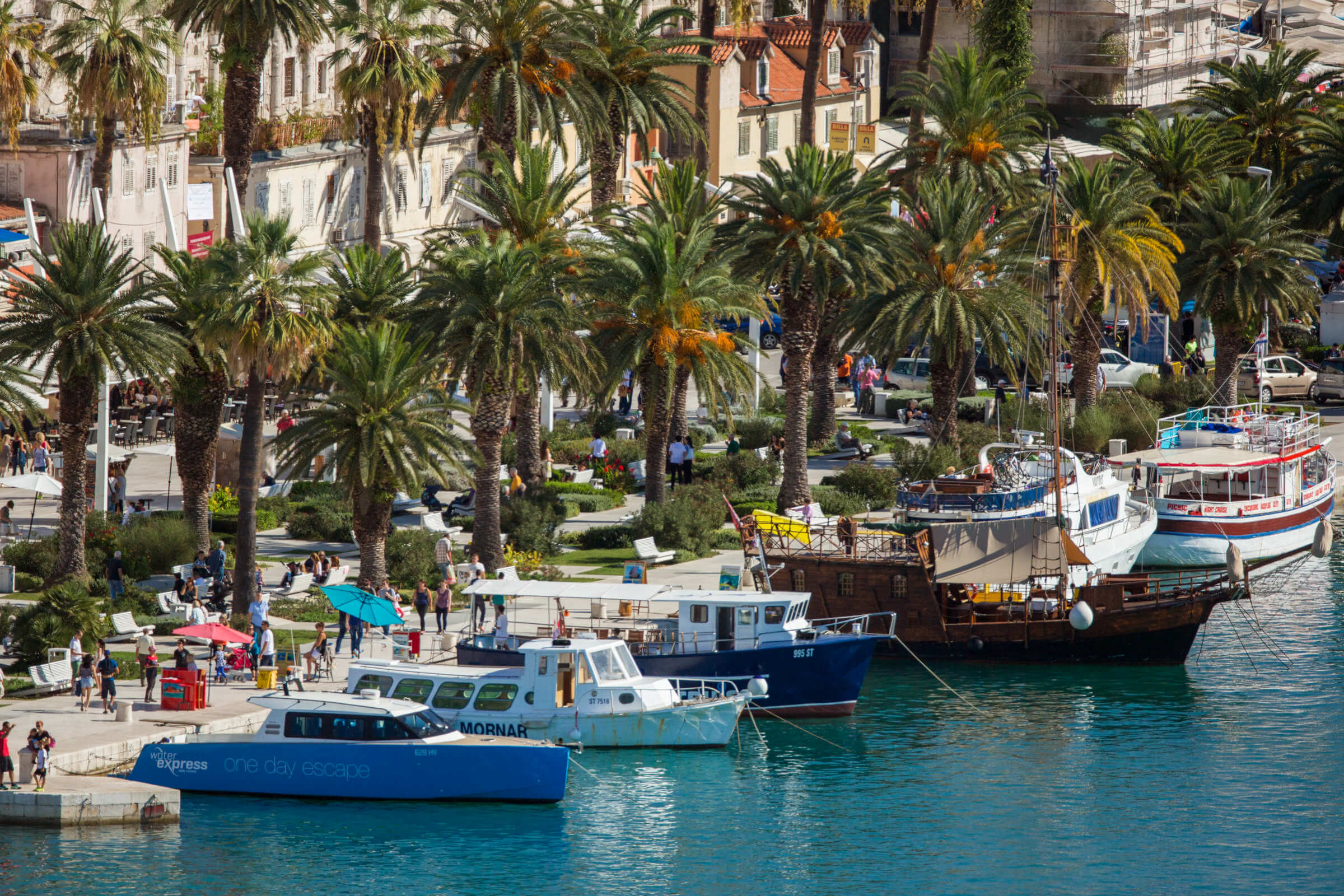Fjaka: A State of Mind that Comes Alive During Croatian Summertime
July 1, 2022 - “A sublime state in which a human aspires for nothing” may seem like a luxury afforded by the privileged, but Croatians in Dalmatia wholeheartedly conclude that the pleasure derived from il dolce far niente – famously known from the ‘Eat Pray Love’ book-to-film adaptation – can be found everywhere from remote farms and vineyards to crowded touristic sites! A look at 'fjaka' in Croatia.

Photo: Romulic & Stojcic
Fjaka is known to be embraced by many during the appearance of the great summer heat, as the mind, soul, and body slow down exceptionally during the oppressive temperatures. Therefore, the Mediterranean sun is known to have brought the term “fjaka” to life – marking the renowned origin of Croatia's national and cultural heritage.
Split, the largest and most beloved city in Dalmatia, is known to be the hub for fjaka and the amount of energy it saps away from the body. Situated on a peninsula in the Adriatic Sea, the vibrant port city is home to many phrases, one of them being “Ajme, judi, ufatila me fjaka!” (“Alas, my friends, jaka has caught me!”). And although many appreciate this state of mind, others may not feel so open to it.

Photo: Romulic & Stojcic
In comparison to the lifestyle seen in metropolitan areas, which is driven by busy schedules and the uncomfortable feeling of unproductive afternoons spent basking in the sun, the culture that is ingrained in the Croatian psyche can be viewed as ‘lazy’. However, it should be argued that it is quite the opposite! The philosophy that is adopted by Croats allows them to know how to enjoy themselves and ultimately not get burnt out from the regular, strenuous working days that many of us face.
While naturally, it is impossible to be doing Fjaka all the time, we should all consider allowing it to wash over us like the peaceful Mediterranean breeze once in a while. Grow to appreciate the slower Dalmatian pace and the relaxed attitude to taking things one day at a time!
For more, check out our lifestyle section.
Croatia Expects Even Better Tourist Results From Germany This Year
ZAGREB, 6 May (2022) - Germany is Croatia's most important tourism market, generating 30% of all foreign tourist bed nights last year, and this year Croatia expects an even better result from this market based on cooperation with the German ADAC auto club, Minister of Tourism and Sport Nikolina Brnjac said on Friday.
Brnjac paid a working visit to Munich during which she met with representatives of ADAC and tour operators with the aim of better positioning Croatia on that market, notably Slavonia and Dubrovnik-Neretva County.
Recalling a Memorandum of Understanding signed with ADAC last year, Brnjac announced that in addition to already agreed activities, cooperation between the travel industry in both countries is expected to improve and one example is the cooperation between ADAC and the Jadrolinija ferry company whose routes have been included in ADAC online maps.
"I am pleased that a large number of tourists from Germany have recognised Croatia as a quality destination," she said.
ADAC is important for the Croatian camping sector because it publishes an ultimate camping guide throughout Europe and last year it included 134 Croatian campsites on its list of best European camps while 13 were given the Superplatz 2021 award.
German tourists generated 21.2 million bed nights in 2021, the same as in the record-breaking 2019, and so far this year 169,000 German tourists have generated 712,000 bed nights, which is 316,000 or 234% more than in the comparable period in 2021. Compared to the same period in 2019, arrivals were down by 26% and bed nights by 12%, the Ministry of Tourism and Sport said.
For more news about Croatia, click here.


